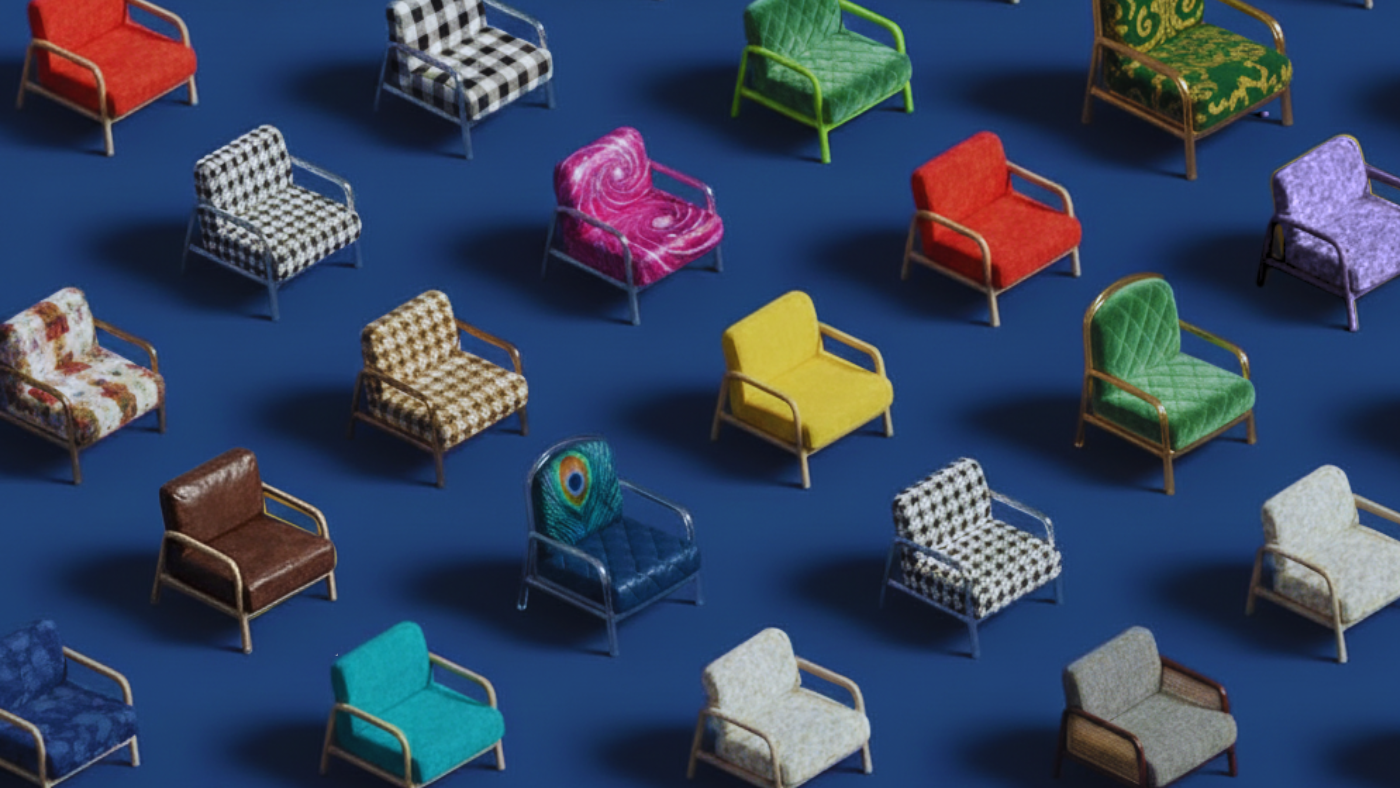Most people think branding starts with how it looks.
They pick colors. Sketch logos. Build moodboards. Then suddenly—they stall.
The problem? The disconnect beneath the design.
It’s not visual.
It isn’t strategic.
It’s emotional.
We recently asked founders, creatives, and early-stage teams:
What’s the hardest part of building a brand?
67% said brand personality.
Not naming, not visuals; not even messaging.
Just figuring out how your brand should feel.
What Is a Brand Personality?
Brand personality is how your brand shows up in the world—tone, voice, vibe, energy.
It’s not just what you say, but how you say it. It’s what makes your brand feel bold, warm, helpful, edgy, playful—or something uniquely its own. And unlike your name or logo, your brand personality isn’t a single choice.
It’s the emotional current that runs through everything.
Why Brand Personality Feels So Personal
Unlike fonts or color codes, personality isn’t decorative. It’s expressive. Identity-driven. It asks hard questions:
-
How do you want to show up?
-
How do you want people to feel around your brand?
-
What tone reflects your values and beliefs?
And that’s where people freeze. Because personality doesn’t come from a list of adjectives. It comes from the inside out. And most tools don’t help you go there.
The Trap: Sounding Like Everyone Else
It’s tempting to look around and borrow what sounds good.
You read brand voice guides. You collect buzzwords like “bold,” “modern,” “approachable.” But something’s missing. Because that borrowed voice isn’t yours. And when your brand doesn’t sound like you, it’s hard to build trust—or confidence.
What starts as inspiration quickly becomes imitation. And that’s where most brands lose their edge before they’ve even launched.
Personality Isn’t a Costume. It’s Your Posture.
Here’s the shift:
You don’t invent your brand personality. You uncover it.
And it’s not a costume you wear to impress. It’s more like posture—how your brand naturally carries itself when it’s being real.
What is posture?
Posture is the way something holds itself. Not just how it stands, but how it shows up—its energy, presence, and rhythm. You can adjust it. But you can’t fake it for long.
Brand posture shows up in your tone, timing, and presence.
It’s not just what you say—it’s how you say it. That’s what people feel before they even process the words or colors. It’s not about decoration. It’s about alignment. And like physical posture, it can be refined. But it has to be rooted in something true.
That truth comes from:
-
What you believe
-
Who you serve
-
How you want people to feel
When that’s clear, the rest follows.
Brand personality isn’t a formula. It’s a filter.
It doesn’t box you in—it helps you decide what fits, what doesn’t, and what your brand should feel like at every touchpoint. Not every brand personality feels the same — and that’s the point.
In fact, behavioral scientist Jennifer Aaker identified five common “dimensions” that show up again and again across strong brands. While every brand is unique, most lean into one or two of these dominant personality traits.

1. Sincerity
Warm. Honest. Grounded.
Sincere brands feel real, approachable, and human. They’re built on trust, connection, and doing good — with messaging that often feels caring or heartfelt. Expect calming visuals, simple language, and a tone that’s rooted in empathy, values, and authenticity.
Think: Dove, Tom’s of Maine, Patagonia
2. Excitement
Bold. Energetic. Daring.
Exciting brands lead with momentum and edge. They’re dynamic, unconventional, and fun — often appealing to younger audiences or those seeking novelty. Expect vibrant color palettes, bold typography, and messaging that evokes thrill, spontaneity, or freedom.
Think: Red Bull, GoPro, MTV
3. Competence
Capable. Reliable. Expert.
Competent brands are trusted leaders — they solve problems with clarity, precision, and skill. These brands are the go-tos when people want things done right. Expect clean design, confident language, and a tone of mastery. These brands are smart without being showy.
Think: Apple, IBM, FedEx
4. Sophistication
Polished. Aspirational. Elevated.
Sophisticated brands feel luxurious, composed, and intentional. They evoke quality, exclusivity, and timeless style — whether minimal or ornate. Expect rich textures, refined design, and messaging that speaks with grace and quiet confidence. It’s about presence, not volume.
Think: Chanel, Rolls-Royce, Tiffany & Co.
5. Ruggedness
Strong. Gritty. Outdoorsy.
Rugged brands are durable, dependable, and a little rough around the edges. They appeal to those who value strength, self-reliance, or the call of the wild. Expect earthy tones, tactile textures, and messaging that taps into freedom, resilience, or untamed spirit.
Think: Jeep, The North Face, YETI
“What matters is choosing a personality that reflects who you really are—and how you want your audience to feel when they experience your brand.”
The way your brand feels matters just as much as how it looks.
Possibly more.
That’s Why We Built EpiphanySuite
Most branding tools give you templates. We give you traction. EpiphanySuite guides you through the foundational decisions—so you’re not guessing at personality. You’re discovering it.
Inside the Define tool, you’ll:
-
Uncover your tone, traits, and tendencies
-
Align them with your values and audience
-
Shape a voice that feels clear, consistent, and true
No generic archetypes.
No moodboard fluff.
Just emotional clarity turned into brand direction.
Final Thought
If you’re stuck on personality, it’s not because you’re unoriginal. Brand personality can’t be copied— it has to be uncovered. And once it is, everything else flows.
Voice. Messaging. Design. Confidence.
Because smarter branding doesn’t start with visuals. It starts with clarity.
Ready to uncover your brand personality? Explore the Define tool.
Join the EpiphanySuite™ waitlist today.


